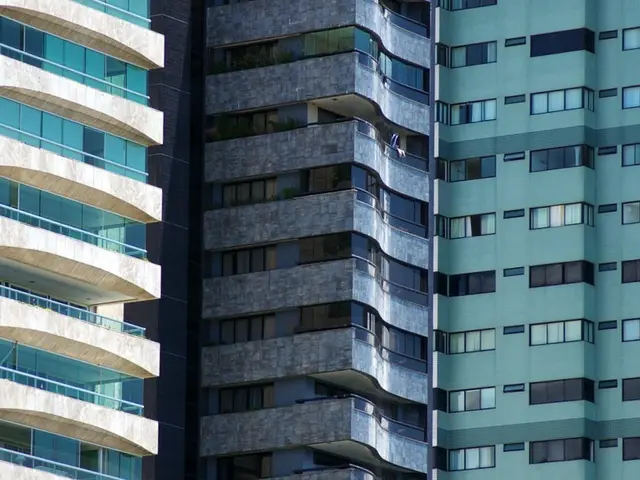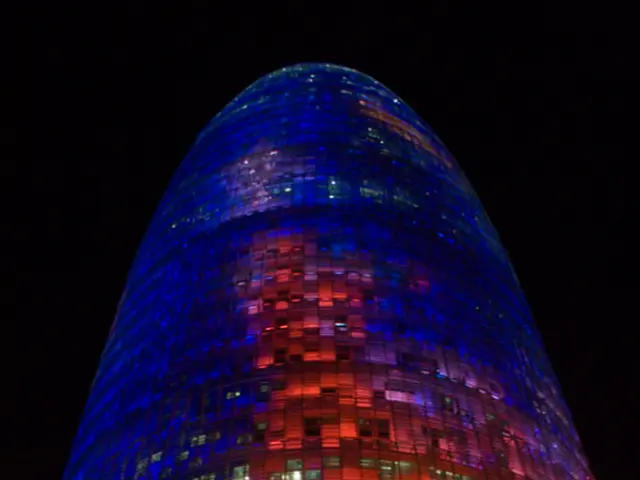Gaming leaders at Vici dismiss concerns about their industry's impact or significance.
Loosenin' Up the Gaming Biz: Vici Properties Navigates Beyond Casinos
Vici Properties, a real estate investment trust (REIT), is shaking things up by focusing on non-gaming investments. During their February 21 earnings call, they emphasized a new joint venture with Cain International and Eldridge Industries to develop One Beverly Hills, California.
Edward Pitoniak, Vici's CEO, called One Beverly Hills "the best-located acres in Beverly Hills." However, he quickly clarified that Vici won't own the development when it's sold, instead eyeballing other potential investments from Cain and Eldridge. Cain normally manages $18 billion in real estate assets.
John Payne, COO, championed this deal as opening a floodgate of partnership opportunities. Vici was no longer just the gaming REIT the industry knew.
To delve deeper into this non-gaming direction, the duo mentioned an upcoming HGTV smart home village in the heart of the Venetian—one of Vici's behemoth properties. Moreover, they pointed to MGM Grand's room refresh and the addition of the Palm Tree Beach Club, along with renovations in Caesars New Orleans and Harvey's Lake Tahoe.
For years, Vici has been known as a casino REIT. David Kieske, the CFO, shared the journey, recounting their humble beginnings with a 10-times debt-to-cash flow ratio seven years post IPO. Today, they boast a $2.5 billion credit facility and $3.3 billion in liquidity. Despite the debt, their margins remain strong.
Vici isn't just crazy about casinos anymore. Their recent moves indicate a shift towards more versatile experiential investments. According to Payne, they're "looking at quite a bit of things in the casino-gaming and experiential spaces."
One potential investment is the Caesars Forum in Las Vegas, an asset Vici has expressed interest in. However, there's still hesitation on committing. The answer, evidently, still hangs in the balance.
Curiously, Pitoniak ruled out the prospect of Vici engaging in actual casino operations, specifically those with hotel rooms. But the gaming landscape isn't entirely off-limits. As Payne reiterated, homegrown ventures are continually under discussion.
Conversations have moved beyond regional casinos, too. The Venetian's assets, Payne noted, are literally bigger than some companies' entire portfolios. And the hottest market is far from settled. Yonkers' MGM Empire City, pending an upgrade to a Class III casino, is still under consideration.
Another interesting development involves the Canadian Onex Corp.'s sale of casinos in Alberta to Indian Gaming Partners (IGP). The transaction isn't by Vici, but Pitoniak sees it as a positive sign for the operational income company (OpCo) market. IGP is looking to expand its portfolio, and according to Payne, we can expect Vici to grow alongside it over time.
In essence, Vici Properties is venturing beyond traditional gaming to explore the heights of experiential real estate. By forming strategic partnerships and tapping into the ever-evolving landscape of entertainment, they're making a move to diversify their portfolio and mitigate risk—all the while banking on the enduring allure of the gaming scene.
Vici Properties is expanding its investment focus beyond gaming, venturing into finance-backed real-estate endeavors like the One Beverly Hills development with Cain International and Eldridge Industries. John Payne, COO, hints at future investments in both casino-gaming and experiential spaces, including potential involvement in Caesars Forum and MGM Empire City, signifying a broader transition in Vici's industry.
As Vici diversifies its portfolio to mitigate risk, it seeks to leverage the ever-evolving landscape of entertainment and experiential real estate, blending traditional gaming with modern investment strategies in finance and real-estate sectors.








